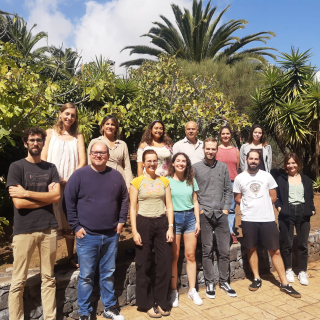Bibcode
Sollima, A.; Carballo-Bello, J. A.; Beccari, G.; Ferraro, F. R.; Pecci, F. Fusi; Lanzoni, B.
Referencia bibliográfica
Monthly Notices of the Royal Astronomical Society, Volume 401, Issue 1, pp. 577-585.
Fecha de publicación:
1
2010
Número de citas
72
Número de citas referidas
67
Descripción
We used deep wide-field photometric observations to derive the fraction
of binary systems in a sample of five high-latitude Galactic open
clusters. By analysing the colour distribution of main-sequence stars,
we derived the minimum fraction of binary systems required to reproduce
the observed colour-magnitude diagram morphologies. We found that all
the analysed clusters contain a minimum binary fraction larger than 11
per cent within the core radius. The estimated global fractions of
binary systems range from 35 to 70 per cent depending on the cluster.
The comparison with homogeneous estimates performed in globular clusters
indicates that open clusters hold a significantly higher fraction of
binary systems, as predicted by theoretical models and N-body
simulations. A dependence of the relative fraction of binary systems on
the cluster mass has been detected, suggesting that the binary
disruption within the cluster core is the dominant process that drives
the fraction of binaries in stellar systems.
Based on the data obtained from the European Southern Observatory
Science Archive Facility and Isaac Newton Group Archive.
E-mail: asollima [at] iac.es (asollima[at]iac[dot]es)
Proyectos relacionados

Huellas de la Formación de las Galaxias: Poblaciones estelares, Dinámica y Morfología
Bienvenida a la página web del g rupo de investigación Traces of Galaxy Formation. Somos un grupo de investigación amplio, diverso y muy activo cuyo objetivo principal es entender la formación de galaxias en el Universo de una manera lo más completa posible. Con el estudio detellado de las poblaciones estelares como bandera, estamos constantemente
Ignacio
Martín Navarro